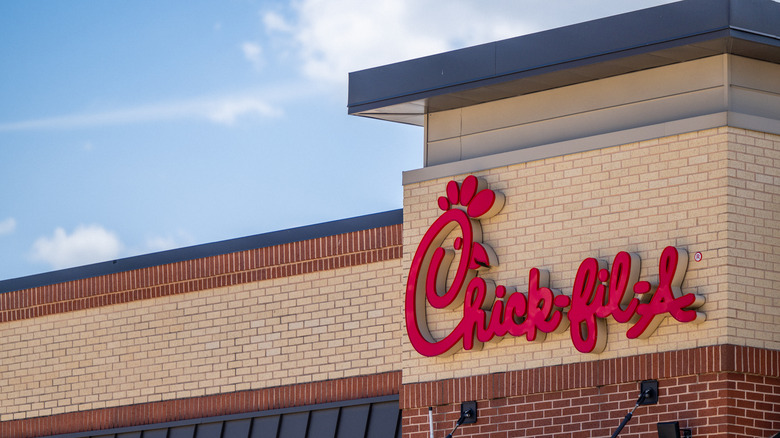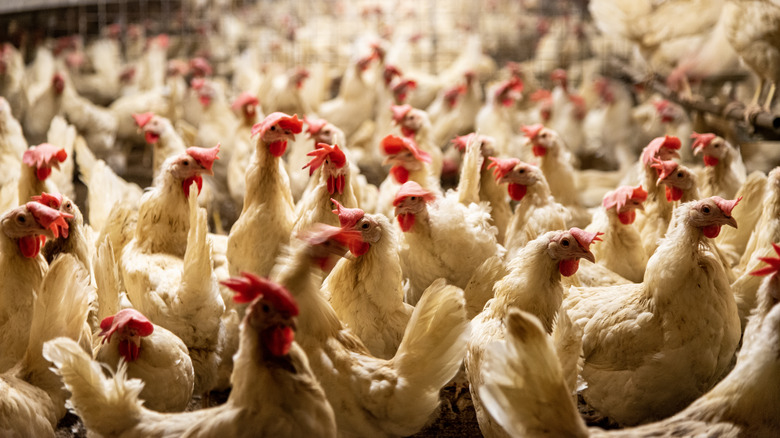Chick-Fil-A Will Scrap Its 'No Antibiotics' Policy For One Major Exception
After 10 years, Chick-fil-A is ending its pledge to never serve chicken treated with antibiotics, citing supply chain shortages for the move. In a press release, the company explained that "Chick-fil-A will shift from No Antibiotics Ever (NAE) to No Antibiotics Important To Human Medicine (NAIHM) starting in the Spring of 2024." The difference here is subtle but important; as NAE entails chicken that was never fed or otherwise treated with any form of antibiotic, while NAIHM means that the chicken may have been treated with antibiotics, just not those considered important to human health. The NAIHM standard is set by the World Health Organization.
Chick-fil-A became the first fast food company to end the use of antibiotics in its poultry back in 2014, but now, Chick-fil-A joins a growing list of companies backing out of such pledges. The United States' top two poultry producers, Tyson and Pilgrim's Pride, recently announced similar moves, all for the same reason: dwindling chicken supplies. Supply chain shortages have devastated numerous industries over the past few years, and poultry has been hit particularly hard. A devastating bird flu outbreak beginning in 2022 has only worsened matters, causing chicken and egg prices to skyrocket. Using chickens treated with antibiotics can mean more meat for your buck, but there's a reason Chick-fil-A and others were originally pressured to avoid that route. Treating farm animals with antibiotics can cause major health concerns for humans.
The problem with antibiotics in meat
Using antibiotics to treat livestock can diminish its efficacy in the long term. It's an effect called antimicrobial resistance — essentially, the more a certain strain of bacteria is exposed to antibiotics, the less effective those antibiotics become at killing said bacteria. If antimicrobial resistance goes too far, it can render essential medications useless. The Centers for Disease Control and Prevention consider antimicrobial resistance to be "an urgent global public health threat," and this is being greatly exacerbated by the use of antibiotics in the livestock business.
In human medicine, antibiotics are typically reserved for those who are already sick with a bacterial infection, but in the livestock industry, antibiotics are routinely given to healthy animals in order to prevent potential infections and to boost their growth. This in turn dramatically increases the amount of exposure between bacteria and antibiotics, leading many strains of bacteria to become resilient to treatment. The WHO developed its criteria of antibiotics important to human medicine in order to ensure that the most essential forms of antibiotics remain effective; and yet Friends of the Earth, an American environmental advocacy group, reports that 70% antibiotics important in human medicine are also sold for agricultural use. Friends of the Earth had previously given Chick-fil-A a "B" grade for its antibiotics policy in 2017, putting the chicken sandwich empire near the top of a fast food industry in which a majority of players got an "F" grade.

